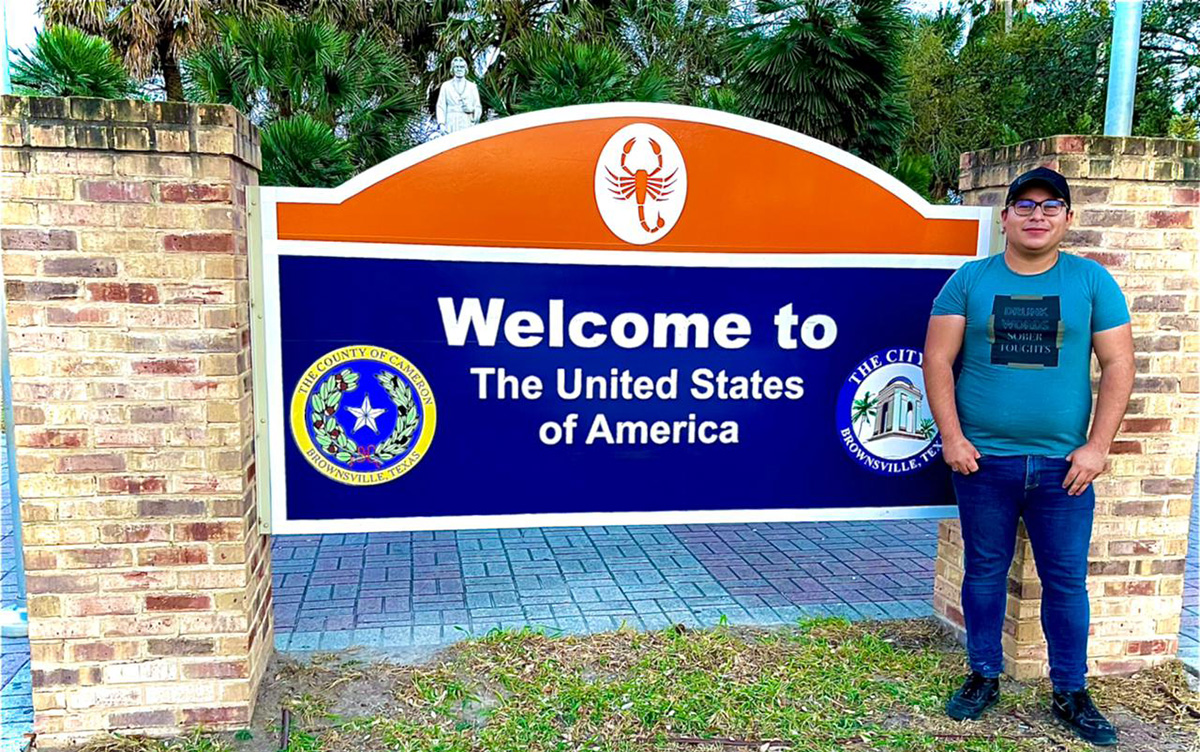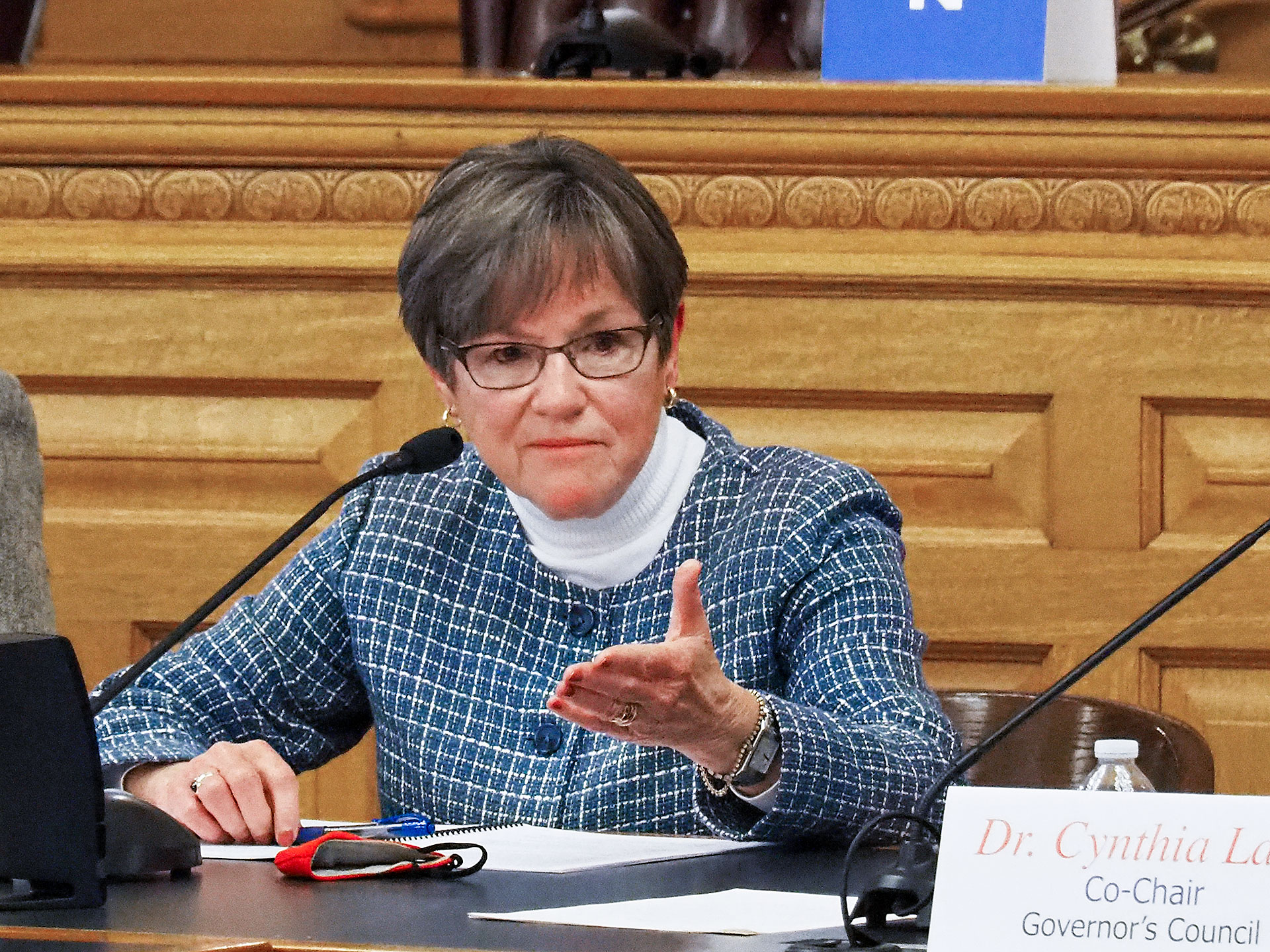National
Boehner panel directs counsel to defend DOMA
Panel votes 3-2 to defend anti-gay statute

A U.S. House panel on Wednesday voted along party lines to direct general counsel to defend the Defense of Marriage Act in court following President Obama’s announcement that his administration would no longer defend the statute against litigation.
In a statement, House Speaker John Boehner (R-Ohio) said the Bipartisan Legal Advisory Group, which he convened last week after the president’s announcement, had come to the conclusion to direct the House General Counsel to defend DOMA after the Wednesday meeting.
“Today, after consultation with the Bipartisan Leadership Advisory Group, the House General Counsel has been directed to initiate a legal defense of this law,” Boehner said. “This action by the House will ensure that this law’s constitutionality is decided by the courts, rather than by the President unilaterally.”
The five-member Bipartisan Legal Advisory Group consists of the speaker, the majority leader, the majority whip, the minority leader, and minority whip.
Michael Steel, a Boehner spokesperson, said the panel voted 3-2 to direct the House General Counsel to take up defend of DOMA, but had no information on any discussion that took place beforehand.
Boehner as well as House Majority Leader Eric Cantor (R-Va.) and House Majority Whip Kevin McCarthy (R-Calif.) voted in favor of directing counsel to defend the statute, while House Minority Leader Nancy Pelosi (D-Calif.) and House Minority Whip Steny Hoyer (D-Md.) voted against such action.
Passed by Congress in 1996 and signed into law by then-President Clinton, DOMA prohibits the federal government from recognizing same-sex marriages and providing married gay couples with the federal benefits of marriage.
Last month, U.S. Attorney General Eric Holder announced that the Obama administration would no longer defend DOMA in court and sent a letter to Congress informing lawmakers of the Justice Department’s decision. The move left the decision of whether to continue defense of DOMA in court to Congress.
Litigation filed against the statute in the Second Circuit — where there’s no precedent for laws related to sexual orientation — allowed the administration to conclude that DOMA is unconstitutional and to call on the court to examine the law with heightened scrutiny.
In a statement, Pelosi denounced the panel’s decision to take up defense of DOMA in court and called the statute “discriminatory” as well as “unfair and indefensible.”
“Since its proposal and passage, this legislation has raised constitutional questions and has been viewed as a violation of the equal protection clause,” Pelosi said. “The House should not be in the business of defending an unconstitutional statute that is neither rational nor serves any governmental interest. DOMA actually discriminates against American families.”
Pelosi said the defense of DOMA would sap the U.S. government of “hundreds of thousands of taxpayer dollars, if not more” at a time when fiscal resources are limited.
“Pursuing this legal challenge distracts from our core challenges: creating jobs, strengthening the middle class, and responsibly reducing the deficit,” she said. “And that is why I voted against this action today.”
Joe Solmonese, president of the Human Rights Campaign, also criticized the panel for voting to take action to defend DOMA.
“Apparently, the Republicans’ jobs plan is a full employment project for right-wing lawyers bent on defending discrimination,” Solmonese said. “With today’s vote, Speaker Boehner has made clear that an anti-equality agenda trumps helping American families in tough economic times, including loving and committed couples who are legally married in their states.”
But Casey Pick, programs director for Log Cabin Republicans, said Boehner’s decision to defend DOMA after consulting with the panel is “entirely appropriate.”
“While Log Cabin Republicans firmly believe that DOMA is an unconstitutional intrusion on states’ rights and a violation of individual liberty, we agree with the speaker that the constitutionality of this law should be determined by the courts and not by the president unilaterally,” she said.
Pick said “nobody should be surprised that Congress has decided to exercise its legal right, and some would say duty” to defend DOMA given how controversial same-sex marriage is at this time.
“We are confident that this law will ultimately be overturned despite any defense presented by House Counsel, and will continue to work with our allies in Congress to advocate for legislative repeal,” she said. “With that decided, it is critical that Congress not waste anymore time on the president’s efforts to distract Republicans with divisive social issues, and instead return to working on the issues that matter most: jobs and the economy.”
A Democratic aide, who spoke on condition of anonymity, said Democrats on the panel pushed back on the decision to intervene on behalf of DOMA before the vote took place.
The aide said Boehner’s statement is misleading becaues it implies the panel held a bipartisan vote in favor of defending DOMA when in fact Pelosi and Hoyer “forcefully argued against the House intervening in these cases.”
According to the aide, Pelosi and Hoyer pressed General Counsel Kerry Kirchner on how much intervening to defend the statute in court would cost the U.S. government.
“General Counsel Kerry Kirchner would only say it would ‘not be inexpensive,'” the aide said. “Mr. Kirchner noted that there are currently at least 10 cases and he does not have the in-house resources to deal with that many cases as he has a staff of five with one lawyer currently on maternity leave.”
The aide said Kirchner told the panel he believed the House intervention in the DOMA case would take a minimum of 18 months because litigation could continue for years before the U.S. Supreme Court hears one of these cases.
“Mr. Kirchner also laid out that the Reagan Administration chose to no longer defend 5 laws in the 1980s,” the aide said. “Clearly, the Republicans were fine with a Republican President choosing not to defend statutes passed by the Congress.”
According to the aide, Pelosi repeatedly pushed back on assertions that the administration was deciding the constitutionality of DOMA by declining to defend the law in court.
“She noted that judicial review was continuing and that a number of groups were filing pro-DOMA briefs in the cases so there was no need for the House to intervene,” the aide said. “And that the administration was still enforcing the law.”
In response, a Republican aide, who also spoke on condition of anonymity, called the Democratic aide’s account of the discussion that took place “silly.”
The GOP aide took issue with the Democratic aide’s assertion that Republicans were fine when President Reagan declined to defend laws in court against litigation.
“Republicans didn’t have the majority in the House during the Reagan administration,” the GOP aide said. “That comparison doesn’t even make sense.”
Additionally, the Republican aide also said decisions haven’t yet been made on the cost and duration of any potential DOMA cases.

The U.S. has granted asylum to a Guatemalan LGBTQ activist who fled his country in 2019.
Estuardo Cifuentes and his partner ran a digital marketing and advertising business in Guatemala City.
He previously told the Washington Blade that gang members extorted from them. Cifuentes said they closed their business after they attacked them.
Cifuentes told the Blade that Guatemalan police officers attacked him in front of their home when he tried to kiss his partner. Cifuentes said the officers tried to kidnap him and one of them shot at him. He told the Blade that authorities placed him under surveillance after the incident and private cars drove past his home.
Cifuentes arrived in Matamoros, a Mexican border city that is across the Rio Grande from Brownsville, Texas, in June 2019. He asked for asylum in the U.S. based on the persecution he suffered in Guatemala because of his sexual orientation.
The Trump administration forced Cifuentes to pursue his asylum case from Mexico under its Migrant Protection Protocols program that became known as the “remain in Mexico” policy.
Cifuentes while in Matamoros ran Rainbow Bridge Asylum Seekers, a program for LGBTQ asylum seekers and migrants that the Resource Center Matamoros, a group that provides assistance to asylum seekers and migrants in the Mexican border city, helped create.
The Biden-Harris administration in January 2021 suspended enrollment in MPP. Cifuentes entered the U.S. on March 3, 2021.
“We are profoundly relieved and grateful that my husband and I have been officially recognized as asylees in the United States,” Cifuentes told the Blade on Monday in an email. “This result marks the end of a long and painful fight against the persecution that we faced in Guatemala because of our sexual orientation.”
Vice President Kamala Harris is among those who have said discrimination and violence based on sexual orientation are among the root causes of migration from Guatemala and other countries in Central America.
Cifuentes is now the client services manager for Lawyers for Good Government’s Project Corazón, a campaign that works “hard to reunite and defend the rights of families impacted by inhumane immigration policies.” He told the Blade he will continue to help LGBTQ asylum seekers and migrants.
“In this new chapter of our lives, we pledge to work hard to support others in similar situations and to contribute to the broader fight for the rights and acceptance of the LGBTQ+ migrant community,” said Cifuentes. “We are hopeful that our story will serve as a call to action to confront and end persecution based on gender identity and sexual orientation.”
U.S. Supreme Court
US Supreme Court rules Idaho to enforce gender care ban
House Bill 71 signed in 2023


BY MIA MALDONADO | The U.S. Supreme Court has allowed Idaho to enforce House Bill 71, a law banning Idaho youth from receiving gender-affirming care medications and surgeries.
In an opinion issued Monday, the U.S. Supreme Court granted the state of Idaho’s request to stay the preliminary injunction, which blocked the law from taking effect. This means the preliminary injunction now only applies to the plaintiffs involved in Poe v. Labrador — a lawsuit brought on by the families of two transgender teens in Idaho who seek gender-affirming care.
Monday’s Supreme Court decision enforces the gender-affirming care ban for all other trans youth in Idaho as the lawsuit remains ongoing in the Ninth Circuit Court of Appeals.

The American Civil Liberties Union and the ACLU of Idaho, both of whom represent the plaintiffs, said in a press release Monday that the ruling “does not touch upon the constitutionality” of HB 71. The groups called Monday’s ruling an “awful result” for trans Idaho youth and their families.
“Today’s ruling allows the state to shut down the care that thousands of families rely on while sowing further confusion and disruption,” the organizations said in the press release. “Nonetheless, today’s result only leaves us all the more determined to defeat this law in the courts entirely, making Idaho a safer state to raise every family.”
Idaho Attorney General Raúl Labrador in a press release said the state has a duty to protect and support all children, and that he is proud of the state’s legal stance.
“Those suffering from gender dysphoria deserve love, support and medical care rooted in biological reality,” Labrador said. “Denying the basic truth that boys and girls are biologically different hurts our kids. No one has the right to harm children, and I’m grateful that we, as the state, have the power — and duty — to protect them.”
Recap of Idaho’s HB 71, and what led to SCOTUS opinion
Monday’s Supreme Court decision traces back to when HB 71 was signed into law in April 2023.
The law makes it a felony punishable for up to 10 years for doctors to provide surgeries, puberty-blockers and hormones to trans people under the age of 18. However, gender-affirming surgeries are not and were not performed among Idaho adults or youth before the bill was signed into law, the Idaho Capital Sun previously reported.
One month after it was signed into law, the families of two trans teens sued the state in a lawsuit alleging the bill violates the 14th Amendment’s guarantee of equal protection under the law.
In late December, just days before the law was set to take effect in the new year, U.S. District Judge B. Lynn Winmill blocked the law from taking effect under a preliminary injunction. In his decision, he said he found the families likely to succeed in their challenge.
The state of Idaho responded by appealing the district court’s preliminary injunction decision to the Ninth Circuit, to which the Ninth Circuit denied. The state of Idaho argued the court should at least enforce the ban for everyone except for the plaintiffs.
After the Ninth Circuit’s denial, the Idaho Attorney General’s Office in February sent an emergency motion to the U.S. Supreme Court, the Idaho Press reported. Monday’s U.S. Supreme Court decision agrees with the state’s request to enforce its ban on trans health care for minors, except for the two plaintiffs.
******************************************************************************************

Mia Maldonado joined the Idaho Capital Sun after working as a breaking news reporter at the Idaho Statesman covering stories related to crime, education, growth and politics. She previously interned at the Idaho Capital Sun through the Voces Internship of Idaho, an equity-driven program for young Latinos to work in Idaho news. Born and raised in Coeur d’Alene, Mia moved to the Treasure Valley for college where she graduated from the College of Idaho with a bachelor’s degree in Spanish and international political economy.
******************************************************************************************
The preceding piece was previously published by the Idaho Capital Sun and is republished with permission.
The Idaho Capital Sun is the Gem State’s newest nonprofit news organization delivering accountability journalism on state politics, health care, tax policy, the environment and more.
We’re part of States Newsroom, the nation’s largest state-focused nonprofit news organization.
Kansas
Kansas governor vetoes ban on health care for transgender youth
Republican lawmakers have vowed to override veto


BY TIM CARPENTER | Gov. Laura Kelly flexed a veto pen to reject bills Friday prohibiting gender identity health care for transgender youth, introducing a vague crime of coercing someone to have an abortion and implementing a broader survey of women seeking abortion that was certain to trigger veto override attempts in the Republican-led House and Senate.
The decisions by the Democratic governor to use her authority to reject these health and abortion rights bills didn’t come as a surprise given her previous opposition to lawmakers intervening in personal decisions that she believed ought to remain the domain of families and physicians.
Kelly said Senate Bill 233, which would ban gender-affirming care for trans minors in Kansas, was an unwarranted attack on a small number of Kansans under 18. She said the bill was based on a politically distorted belief the Legislature knew better than parents how to raise their children.
She said it was neither a conservative nor Kansas value to block medical professionals from performing surgery or prescribing puberty blockers for their patients. She said stripping doctors of their licenses for serving health interests of patients was wrong. Under the bill, offending physicians could be face lawsuits and their professional liability insurance couldn’t be relied on to defend themselves in court.
“To be clear, this legislation tramples parental rights,” Kelly said. “The last place that I would want to be as a politician is between a parent and a child who needed medical care of any kind. And, yet, that is exactly what this legislation does.”
Senate President Ty Masterson (R-Andover) and House Speaker Dan Hawkins (R-Wichita) responded to the governor by denouncing the vetoes and pledging to seek overrides when legislators returned to the Capitol on April 26. The trans bill was passed 27-13 in the Senate and 82-39 in the House, suggesting both chambers were in striking distance of a two-thirds majority necessary to thwart the governor.
“The governor has made it clear yet again that the radical left controls her veto pen,” Masterson said. “This devotion to extremism will not stand, and we look forward to overriding her vetoes when we return in two weeks.”
Cathryn Oakley, senior director of the Human Rights Campaign, said the ban on crucial, medically necessary health care for trans youth was discriminatory, designed to spread dangerous misinformation and timed to rile up anti-LGBTQ activists.
“Every credible medical organization — representing over 1.3 million doctors in the United States — calls for age-appropriate, gender-affirming care for transgender and nonbinary people,” Oakley said. “This is why majorities of Americans oppose criminalizing or banning gender-affirming care.”
Abortion coercion
Kelly also vetoed House Bill 2436 that would create the felony crime of engaging in physical, financial or documentary coercion to compel a girl or woman to end a pregnancy despite an expressed desire to carry the fetus to term. It was approved 27-11 in the Senate and 82-37 in the House, again potentially on the cusp of achieving a veto override.
The legislation would establish sentences of one year in jail and $5,000 fine for those guilty of abortion coercion. The fine could be elevated to $10,000 if the adult applying the pressure was the fetuses’ father and the pregnant female was under 18. If the coercion was accompanied by crimes of stalking, domestic battery, kidnapping or about 20 other offenses the prison sentence could be elevated to 25 years behind bars.
Kelly said no one should be forced to undergo a medical procedure against their will. She said threatening violence against another individual was already a crime in Kansas.
“Additionally, I am concerned with the vague language in this bill and its potential to intrude upon private, often difficult, conversations between a person and their family, friends and health care providers,” the governor said. “This overly broad language risks criminalizing Kansans who are being confided in by their loved ones or simply sharing their expertise as a health care provider.”
Hawkins, the House Republican leader, said coercion was wrong regardless of the circumstances and Kelly’s veto of the bill was a step too far to the left.
“It’s a sad day for Kansas when the governor’s uncompromising support for abortion won’t even allow her to advocate for trafficking and abuse victims who are coerced into the procedure,” Hawkins said.
Emily Wales, president and CEO of Planned Parenthood Great Plains Votes, said HB 2436 sought to equate abortion with crime, perpetuate false narratives and erode a fundamental constitutional right to bodily autonomy. The bill did nothing to protect Kansas from reproductive coercion, including forced pregnancy or tampering with birth control.
“Planned Parenthood Great Plains Votes trusts patients and stands firmly against any legislation that seeks to undermine reproductive rights or limit access to essential health care services,” Wales said.
Danielle Underwood, spokeswoman for Kansas for Life, said “Coercion Kelly” demonstrated with this veto a lack of compassion for women pushed into an abortion.
The abortion survey
The House and Senate approved a bill requiring more than a dozen questions be added to surveys of women attempting to terminate a pregnancy in Kansas. Colorful debate in the House included consideration of public health benefits of requiring interviews of men about reasons they sought a vasectomy birth control procedure or why individuals turned to health professionals for treatment of erectile dysfunction.
House Bill 2749 adopted 81-39 in the House and 27-13 in the Senate would require the Kansas Department of Health and Environment to produce twice-a-year reports on responses to the expanded abortion survey. The state of Kansas cannot require women to answer questions on the survey.
Kelly said in her veto message the bill was “invasive and unnecessary” and legislators should have taken into account rejection in August 2022 of a proposed amendment to the Kansas Constitution that would have set the stage for legislation further limiting or ending access to abortion.
“There is no valid medical reason to force a woman to disclose to the Legislature if they have been a victim of abuse, rape or incest prior to obtaining an abortion,” Kelly said. “There is also no valid reason to force a woman to disclose to the Legislature why she is seeking an abortion. I refuse to sign legislation that goes against the will of the majority of Kansans who spoke loudly on Aug. 2, 2022. Kansans don’t want politicians involved in their private medical decisions.”
Wales, of Planned Parenthood Great Plains Votes, said the bill would have compelled health care providers to “interrogate patients seeking abortion care” and to engage in violations of patient privacy while inflicting undue emotional distress.
Hawkins, the Republican House speaker, said the record numbers of Kansas abortions — the increase has been driven by bans or restrictions imposed in other states — was sufficient to warrant scrutiny of KDHE reporting on abortion. He also said the governor had no business suppressing reporting on abortion and criticized her for tapping into “irrational fears of offending the for-profit pro-abortion lobby.”
******************************************************************************************

Tim Carpenter has reported on Kansas for 35 years. He covered the Capitol for 16 years at the Topeka Capital-Journal and previously worked for the Lawrence Journal-World and United Press International.
The preceding story was previously published by the Kansas Reflector and is republished with permission.
******************************************************************************************
The Kansas Reflector is a nonprofit news operation providing in-depth reporting, diverse opinions and daily coverage of state government and politics. This public service is free to readers and other news outlets. We are part of States Newsroom: the nation’s largest state-focused nonprofit news organization, with reporting from every capital.




















